Keep up with the Latest
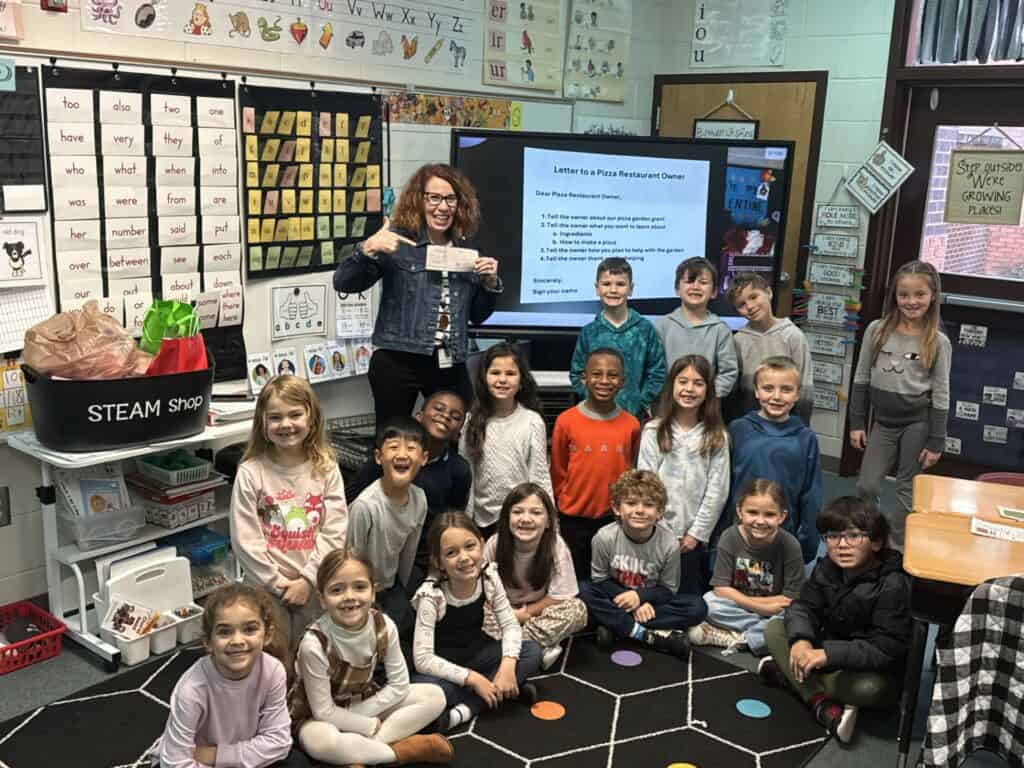
First Graders Plant the Seeds of Agricultural Learning with Pizza Garden Project
When you ask a first grader where pizza comes from, they might say "the delivery guy" or "the grocery store." But in Stephanie Westhafer's first-grade classroom at West Jackson Elementary School, students are about to discover the real journey from farm to pizza box, thanks to a $500 grant from HireSmart Cares. Westhafer's class is…

Texas Teacher’s Vision for Drone Program Takes Flight with HireSmart Grant
Instructor Terry Andre Hayes has personally paid for drones for students to fly at his alma mater, Evan E. Worthing Early College High School in Houston. The 1979 Worthing graduate and Naval Science instructor at the school sees drones as a pathway to success for his students, but the financial burden of supplying equipment has…
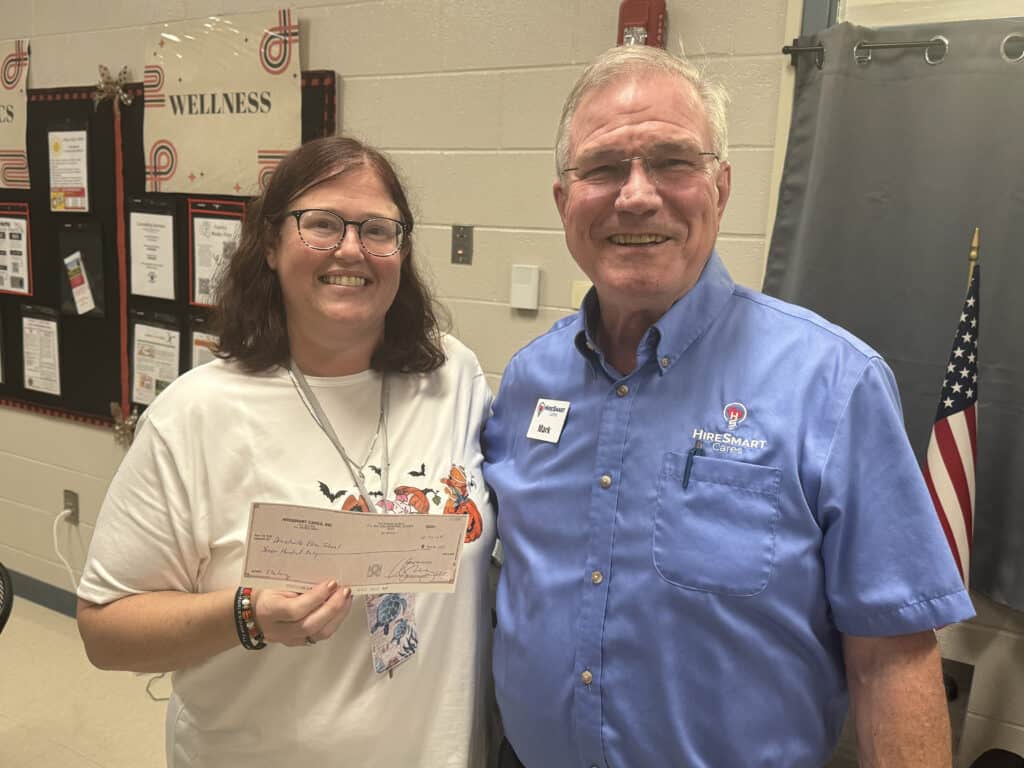
HireSmart Covers Cost of Shelving for Construction Class
Danielsville Elementary School construction teacher Christy Hanson recently received a check for $700 from HireSmart Cares Co-founder Mark Lackey. The grant covered the cost of mobile shelving for the school's construction class materials. "The shelves have come in so handy for us," said Hanson, whose fourth and fifth-grade students learn the construction basics. "I can…
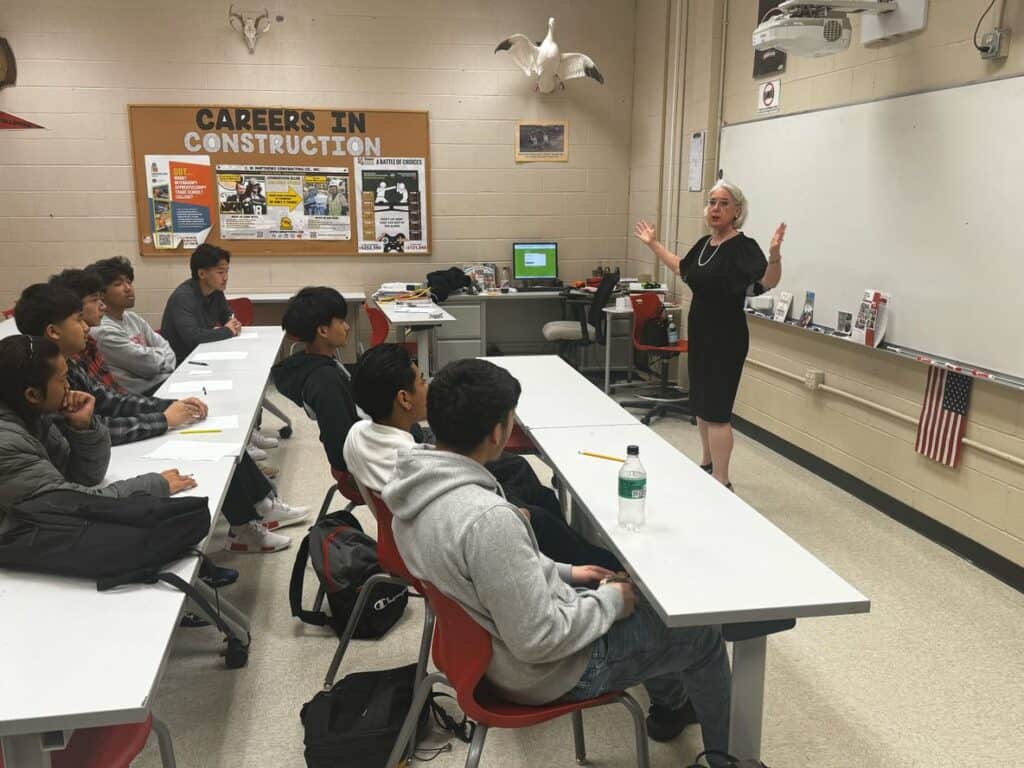
Real-Life Lessons in Job Hunting: HireSmart Cares CEOs Share Tips with MCHS Construction Class
What makes a resume stand out? How do you prepare for an interview, and what are good questions to ask a potential employer in a job interview? HireSmart Cares co-founders and CEOs Anne and Mark Lackey, who have created and run successful real estate and international staffing businesses, recently shared answers to those questions with…
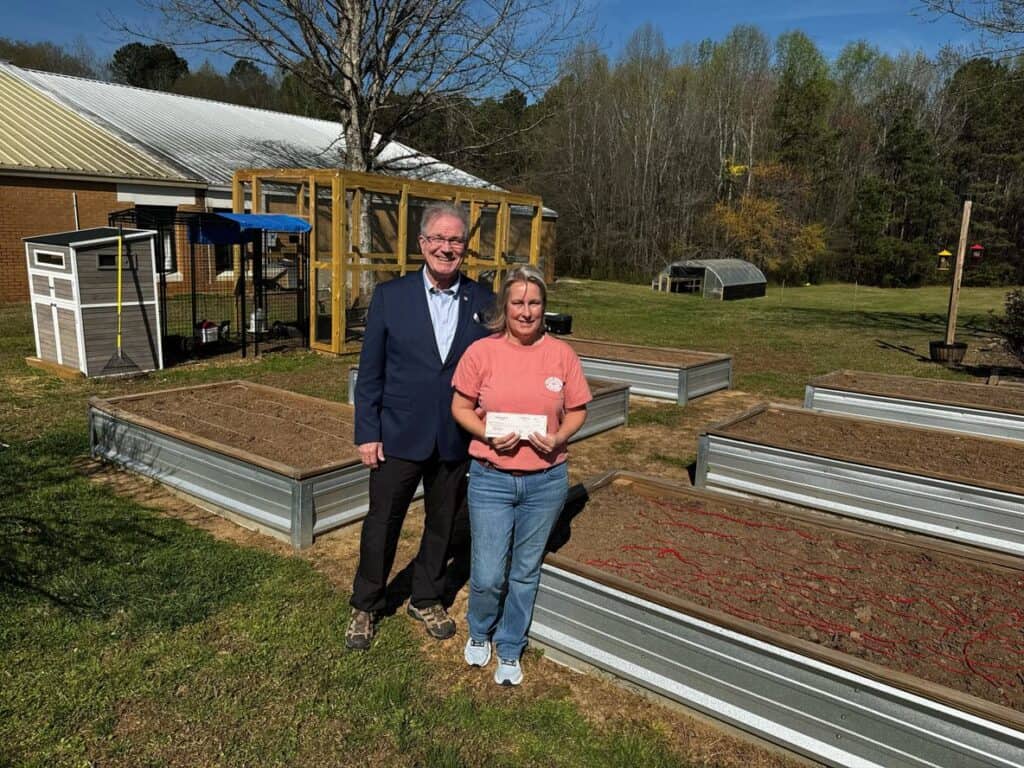
HireSmart invests in future farmers at Colbert Elementary
It’s not Dasher and Dancer, and Prancer and Vixen — remember the Rudolph song? Try Charlotte, Pumpkin, Nugget, and Flappy. Those are the chickens at the mini-farm at Colbert Elementary School where teacher Jenny Heath shows over 400 students the joys and satisfactions in the disciplined care of animals and crops. “Students are learning the…
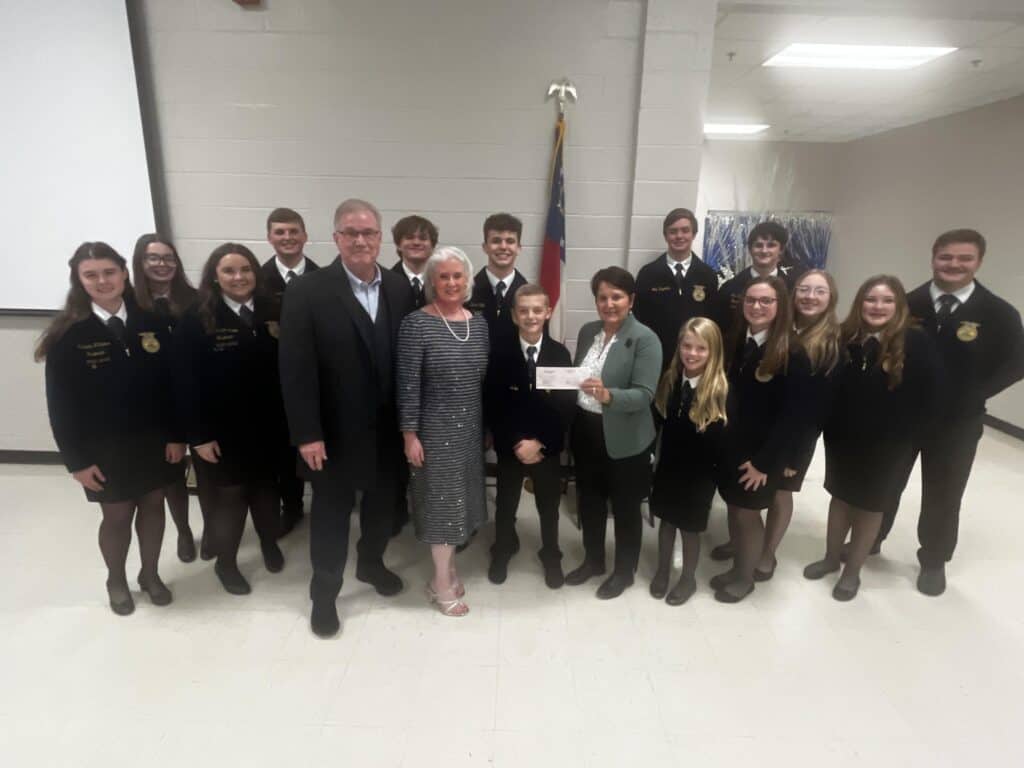
Expanding Ag Access: HireSmart Cares donates $50K for MCHS barn expansion, giving more students ag opportunities
Madison County High School student Gavin Heath lives in a subdivision in Hull, but he's learning to be a farmer as he cares for pigs "Tom and Jerry" at the MCHS ag barn. The freshman loves the camaraderie with other students at the facility who also care for show animals. "It's a family we've created…
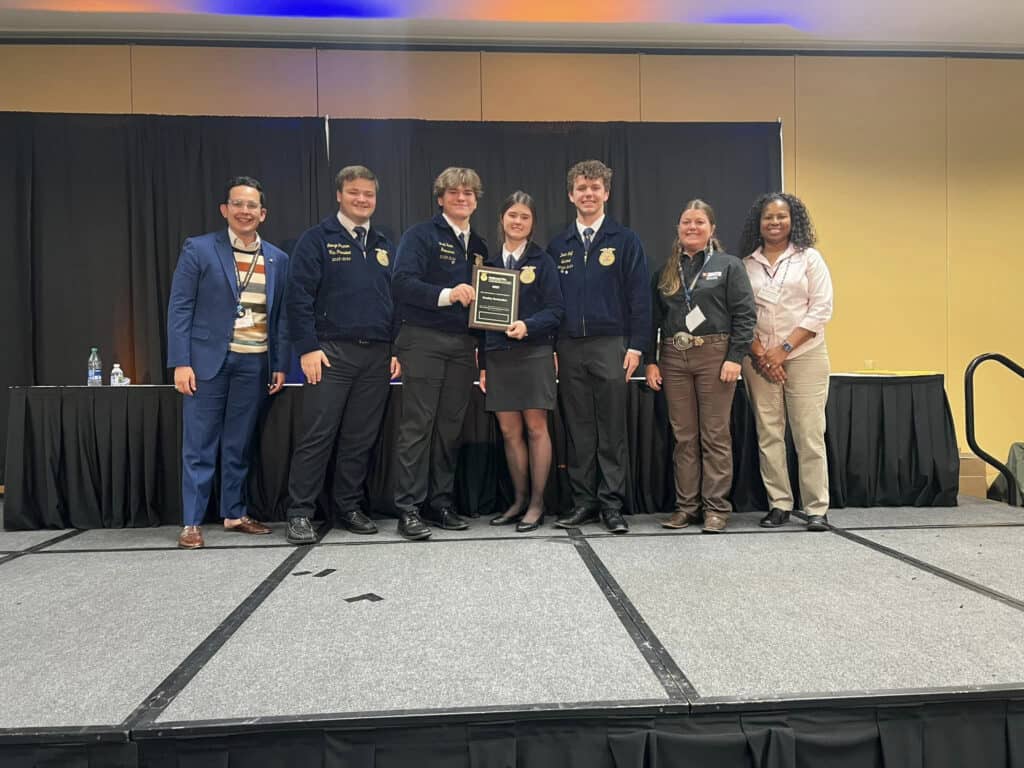
HireSmart Supports Poultry Team that Finished 5th Nationally
Four Madison County, Georgia students traveled to Indianapolis recently and walked away with the fifth-place plaque in the National FFA Poultry evaluation "Career Development Event" (CDE). "We all truly wanted it," said team member Isabelle Williams, who was named the high individual in the written exam. "We wanted to win, and we worked so much…
